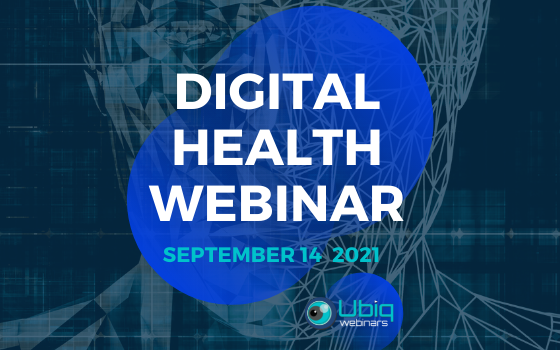The digital healthcare ecosystem is evolving with rapid speed. Technologies such as AI, robotics, telemedicine, and precision medicine are a mix of challenges and opportunities. At the Digital Health Webinar, you will be introduced to digital medicine and DTx, novel wearables, data collection methods, regulatory issues, and other topics. Join the full-day conference Digital Health Webinar on September 14 and network with high-level digital health professionals from pharmaceutical companies and organizations such as Novartis, Teva, Roche, Genentech, Merck, Sanofi, BMS, Ipsen, World Health Organization, and Stanford University.
You will automatically receive 14 days of access to the recorded version of the webinar.
At this webinar, you will listen to hot topics like:
1. From Connected Health to Connected Care: Integrating Product, Technology and System- Speaker: Sander Ruitenberg, Global Digital Health Solutions Head, Novartis
2. Machine Learning, Biosensing, and Virtual Reality Technology - Converging to Impact Healthcare - Speaker: Walter Greenleaf, Ph.D. Neuroscientist, Virtual Reality, and Digital Health Expert Stanford University Virtual Human Interaction Lab
3. Regulatory Landscape of Digital Health- Speaker: Nathan Carrington, Head of Digital Health and Innovation
4. Tackling the Burden of Chronic Disease with Digital Health– Speaker: Michael John Miller, Digital Health Technical Advisory Group (DHTAG) Roster of Experts, WHO
5. Privacy and Security Measures to Protect Patient Data in the New Era of Personalized Medicine– Speaker: Basker Gummadi, Instructor, Digital Health and Innovation in Clinical Trials @ UCSD, Senior Director, Digital Therapeutics, Bristol Myers Squibb
6. Cybersecurity for Digital Health– Speaker: Emily Luvison, Lead, Cybersecurity Compliance for Digital Health Technologies, Genentech
7. Realizing the Promise of Digital Health Partnerships– Speaker: Lauren Liutong Li, Global Head of Digital Health, Ipsen
8. Digital Pharmaceuticals and why it makes sense! - Speaker: Mark Milton-Edwards, Head of Health Solutions – Digital Health, Teva Pharmaceuticals
By registering for this 1-day conference you will:
- Learn about the newest Digital Health Projects worldwide
- Meet and network with the experts from Big Pharma
- Listen about data management and patient’s privacy
- Learn about novelties in healthcare regulatory, Artificial Intelligence, and Machine Learning
- Explore the rise of telemedicine during and post-pandemic
- Gain insight into innovating patient support and patient engagement
- Get the certificate of participation
- Get access to the recorded webinar for 14 days
For further information and to register, please visit:
https://ubiqwebinars.com/digital-health/
About UBIQ Webinars
UBIQ webinars is a virtual conference producer company. Our team works together to create, promote and produce thought-provoking webinars on a wide range of interesting topics. We are available to help you to craft your next professional webinar and spread the idea you have in mind.
